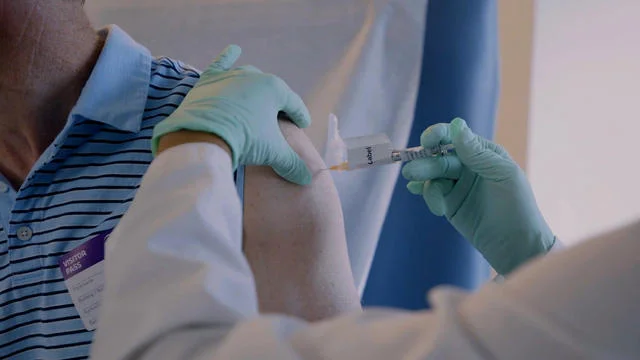Vaccine Court: 60 Minutes Reports on the Balance Between Public Health and Individual Harm

This Sunday, October 5, 2025, 60 Minutes correspondent Jon Wertheim examines the National Vaccine Injury Compensation Program in a report that explores the delicate balance between public health and individual risk. The segment, produced by Denise Schrier Cetta, shines a light on a system often overlooked by the public, yet one that has played a critical role in American healthcare for nearly four decades.
- The Tequila Heist: 60 Minutes Investigates How Organized Crime Targets Global Supply Chains
- This Is Rob Reiner: 60 Minutes Explores the Director’s Return to Spinal Tap
- 60 Minutes Reports on “Vaccine Court”, “The Tequila Heist” & “This Is Rob Reiner” October 5 2025
Origins of the National Vaccine Injury Compensation Program
The Vaccine Injury Compensation Program, commonly known as the “Vaccine Court,” was established in 1988 amid growing concerns about adverse reactions to childhood vaccines. At the time, vaccine manufacturers faced a rising number of lawsuits, which threatened to limit the availability of critical immunizations. Congress responded by creating a federal program designed to provide a no-fault alternative to traditional litigation, allowing individuals harmed by vaccines to receive compensation without the need to prove negligence.
The program’s creation was a landmark decision that aimed to protect both public health and individual rights. It acknowledges that while vaccines are overwhelmingly safe and essential for preventing disease outbreaks, rare adverse events can occur. By offering a structured legal pathway, the Vaccine Court seeks to provide victims with fair compensation while maintaining confidence in vaccination programs.
How the Program Works
Unlike typical court cases, claims in the Vaccine Court do not require proving fault. Petitioners submit medical documentation showing that a vaccine likely caused an injury, and special masters—appointed judges with expertise in vaccine-related claims—review the evidence. If the claim is successful, the court can award compensation for medical expenses, lost wages, and, in some cases, pain and suffering.
Since its inception, the program has paid out billions of dollars to thousands of Americans, covering injuries ranging from mild reactions to more serious neurological conditions. The process is designed to be faster and less adversarial than traditional lawsuits, providing a measure of security for families who experience unexpected outcomes from vaccines.
Controversies and Challenges
Despite its intentions, the Vaccine Court has faced scrutiny over the years. Some critics argue that the compensation process can be slow and bureaucratic, while others question whether payouts adequately reflect the impact on families. Additionally, debates over vaccine safety and mandates have intensified, placing the program at the center of political and public discussions about health policy.
Experts emphasize that the Vaccine Court serves a dual purpose: protecting public trust in immunization while ensuring that individuals who suffer rare harms are not left without recourse. Wertheim’s reporting highlights both the human stories behind the claims and the broader public health implications, illustrating the ongoing tension between individual experiences and collective safety.
Public Health Implications
The Vaccine Court represents more than a legal mechanism—it is a key component of the United States’ public health infrastructure. By providing a predictable and structured path for claims, the program helps sustain vaccination programs that protect millions from infectious diseases. Health officials point to the program as a critical factor in maintaining high immunization rates and minimizing the disruption of vaccine production and distribution.
As debates about vaccines continue in the public sphere, the Vaccine Court remains a unique institution that balances legal, medical, and societal priorities. Wertheim’s report on 60 Minutes offers viewers a closer look at how this often unseen system operates and why it remains vital to both individual Americans and the broader community.
More 60 Minutes October 5 2025
- 60 Minutes Reports on “Vaccine Court”, “The Tequila Heist” & “This Is Rob Reiner” October 5 2025
- Vaccine Court: 60 Minutes Reports on the Balance Between Public Health and Individual Harm
- The Tequila Heist: 60 Minutes Investigates How Organized Crime Targets Global Supply Chains
- This Is Rob Reiner: 60 Minutes Explores the Director’s Return to Spinal Tap
More Feature Articles
- “What Happened to the McStays?”: 20/20 Reports October 3 2025
- “The Bucket Hat Mystery”: Dateline Reports on Jon Tokuhara Homicide October 3 2025
- “Murder in the Parking Garage”: 48 Hours Investigates the Calculated Killing of Kenneth Fandrich October 4 2025
- 60 Minutes Reports on “Vaccine Court”, “The Tequila Heist” & “This Is Rob Reiner” October 5 2025







